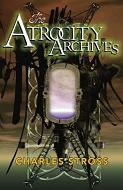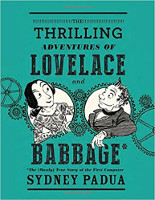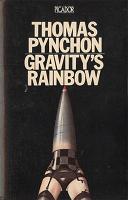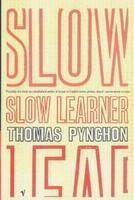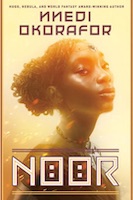 Nnedi Okorafor is a US-born writer with roots in Nigeria; she writes both fantasy and sf, with her writing reflecting both the country and society she lives in, but frequently, especially in topic and setting, her African roots. Besides being a successful writer she also is a professor at the Chicago State University. She has been nominated for, and has won, a number of awards, most notably the Wole Soyinka Prize for Literature for her first book (Zahrah the Windseeker), the Hugo and Nebula awards, and the World Fantasy Award for best Novel with Who Fears Death. Noor is her 14th novel, with yet another one (Akata Witch 3 – Akata Woman) scheduled for publication in January 2022.
Nnedi Okorafor is a US-born writer with roots in Nigeria; she writes both fantasy and sf, with her writing reflecting both the country and society she lives in, but frequently, especially in topic and setting, her African roots. Besides being a successful writer she also is a professor at the Chicago State University. She has been nominated for, and has won, a number of awards, most notably the Wole Soyinka Prize for Literature for her first book (Zahrah the Windseeker), the Hugo and Nebula awards, and the World Fantasy Award for best Novel with Who Fears Death. Noor is her 14th novel, with yet another one (Akata Witch 3 – Akata Woman) scheduled for publication in January 2022.
Nnedi emphatically considers most of her output to be Africanfuturism (ie to concern itself with the future of Africa and its people) and not Afrofuturism (which concerns itself with the future of the African diaspora in the USA), and Noor clearly falls under that definition.
I also feel I have to include a disclaimer here – I am totally utterly caucasian in background and upbringing. Not African, not of African descent, and not even American. This means that my knowledge of the cultural background of this story is minimal, so there will be, by definition, loads that I misread, or plainly miss due to this. So take this review as what it is – a read by somebody not familiar with the setting, and thus really only valid for other readers approaching this story from a similarly alien angle. All errors, by omission or commission, are by default mine.
But what is the story about, I hear you ask? Well, it is set in Nigeria, in a Nigeria of the near future, clearly recognisable by its technology, surveillance proliferation, and Corporatocracy as a direct descendant of our times. It also is a Nigeria of an incredible natural disaster, with a sandstorm (known as the Red Eye, in reference to the permanent storm on Jupiter) which has been circling for 30 years now. It is being tapped for energy using wind turbines, known as Noor.
In this world we meet a woman, calling herself AO (for Autobionic Organism) who was born crippled, and who has been substantially cybernetically enhanced with bionic legs and an arm, plus memory implants – all from Ultimate Corp, the dominant mega-corporation.
Generally, in this world, mega-corporations are more powerful than governments, are distorting news for their own ends, and are driving societal developments and changes to their aims.
And so we watch AO go out into the market, the day after splitting from her fiancee – and get attacked, on religious/anti-machine grounds. We see her kill 5 of her assailants, and run. Her normality, her reality shattered and lost, she flees to the desert, where she meets DNA.
DNA is a traditional herdsman, one of the few left. And, only a day before, he walked into an ambush which cost him his friends, and most of his animals. And the ambush, either directly or indirectly, was most likely set up by Ultimate Corp which is trying to stir up conflict between farmers and the traditional herders, to their own benefit.
For the rest of the story – it is neither very long, nor in plot terribly complex – we follow AO and DNA as they run from their pursuers, affecting everything they touch on their trip into the Red Eye, and learn more about what being AO, and being enhanced as she is actually means.
The world is watching, through myriad cameras and drones... just as we are watching through the eyes of AO.
I'm not going to spill more of the story – it is worth your time and money to follow it yourself!
What fascinated me about it, besides following the thread of the developments as they spiral toward the final denouement, was how differently the story can be read, and how this kept changing in my mind (and in turn changed the story as I read it).
Besides the classic Hero's Journey view, which brings disruption, change, and resistance to it all the way to birth pains of the new self this can also be seen as a commentary on society and its changes as time moves on, or as an environmental elegy, given the nature of the catastrophe that AO and DNA move into. Some of it reads as anti-corporate warning (very valid, given where we are already, never mind where this has moved to in the story), and the value (or not) of some of the changes that are taking place.
But at the very core, as with lots of SF, the question is asked what it means to be human, and what this could mean in changing times, and especially when we start changing ourselves more and more.
The ending leaves a lot of avenues open for follow-on work; from that perspective Noor is quite a lot like some earlier versions of the Book of Phoenix by the same author, which has been fleshed out and pulled together since. Me, for one, would be looking forward to hear more about AO, and about the world she lives in.
Title: Noor
Author: Nnedi Okorafor
Reviewer: Markus
Reviewer URL: http://thierstein.net
Publisher: DAW Books
Publisher URL: http://www.dawbooks.com
Publication Date: Nov 2021
Review Date: 220209
ISBN: 978
Price: UKP
Pages: 175
Format: ePub
Topic: Africanfuturism
Topic: Science Fiction
Thanks to the publisher for the review copy.
